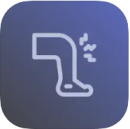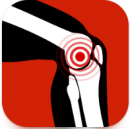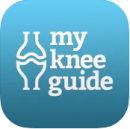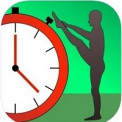There are some good apps that provide both a structured exercise programme, as well as screening questions to assess your baseline level of fitness or exercise. However, the gold-standard for providing an exercise programme is having face-to-face input with a health professional. Exercise-based apps can be a good addition to face-to-face input, but should not seen as a complete replacement. Wherever possible, you should see a health professional to determine whether an app-based exercise programme is suitable for you. Here are some tips when using knee exercise apps.
Tips when using knee exercise apps
Do (✔)
- Talk with your physiotherapist or doctor about your needs. Everyone’s body is different, and what might be a suitable level of exercise for one person could be too much for another. Your age, fitness level, and your condition will affect the type of exercise you can do.
- Before using exercise videos on apps, check with your physiotherapist or doctor if they are suitable for you. Sometimes exercises need to be changed to suit you. How often you do the exercises and how many repetitions will also need to be checked. Your physiotherapist will help you plan an exercise program, with gradual progress, making sure your body has time to recover between exercises.
- Use an app for tracking your progress to keep you going, but remember not to push yourself too hard. You may risk further injury or muscle strain and a longer recovery time if you do too much.
- Use an app to keep track of your symptoms and your management plan. Graphs and reports from apps can be useful to discuss with your healthcare provider.
- Be careful reading discussion boards or group chats. Some apps have these so users can share their experiences. These aren't usually monitored by a health professional so the advice or suggestions may not be safe or effective.
Don’t ( ✘)
- Rely on apps to make a diagnosis.
- Make changes to your exercise programme from an app without checking with your healthcare provider first.
- Make changes to your exercise form or technique without checking with your healthcare provider, this can lead to injury if you place stress on certain muscles or joints.
- Ignore pain, continuing with exercise while you have sharp or worsening pain can led to further injury. It is important to tell the difference between normal discomfort with exercise and pain from doing too much.









